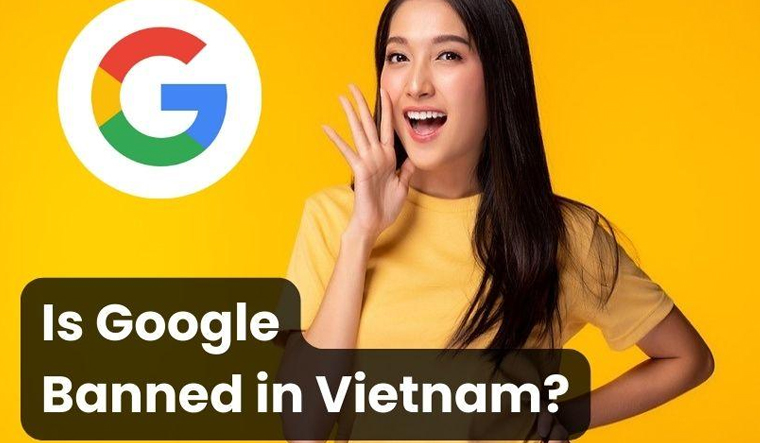QUICK ANSWER:
No, Google is not banned in Vietnam. Vietnamese citizens can use Google freely.
(But many Youtube channels that used to report news have been banned)
Related post: Did you know that you can Buy Google Reviews ?
Click here to see the Where to Buy Google Reviews .
Click here to learn How to Buy Reviews on Google .
--
The Wikipedia page on internet censorship in Vietnam provides information on the topic.
The government of Vietnam claims that it blocks obscene or sexually explicit content, but many of the filtered sites actually contain politically or religiously critical materials that could undermine the Communist Party and its one-party rule. Amnesty International has reported multiple cases of Internet activists being arrested for their online activities.
Background Edit
reactionary" or "depraved" content
Vietnam's internet regulation began in 1997 with a government decree that gave the General Director of the Postal Bureau exclusive authority over internet usage. This included overseeing internet service providers, registering users, and managing subscription contracts.
Legal framework Edit
Regulatory responsibility for Internet material in Vietnam is divided by subject matter. The Ministry of Culture and Information focuses on sexually explicit, superstitious, or violent content, while the Ministry of Public Security monitors politically sensitive content. Vietnam's constitution guarantees freedom of speech, press, and assembly, but state security laws and regulations limit these protections. All Internet content in Vietnam must comply with various laws, including state secrets and intellectual property protections. Both domestic and foreign individuals and organizations are legally responsible for the content they create and disseminate online. Using the Internet to oppose the state, destabilize security or the economy, disclose state secrets, infringe on others' rights, or interfere with the DNS servers is unlawful. The Law on Information Technology was enacted in 2006. Violators of Internet use rules can face penalties ranging from fines to criminal liability.
This includes people who buy negative Google reviews , and people who buy Google ads accounts .
In 2010, a law was passed that mandated public Internet providers, including Internet cafes, hotels, and businesses offering free Wi-Fi, to install software for monitoring users' activities.
In September 2013, Decree 72 was implemented, which prohibits the online distribution of materials that are deemed harmful to national security or oppose the actions of the Vietnamese Government. It only permits users to exchange personal information through blogs and social media platforms, while banning the circulation of general information or any content from media outlets, including state-owned ones. Additionally, foreign web companies are required to operate servers within Vietnam if they target Vietnamese users.
Censored content Edit
Subversive content Edit
In Saigon, there are rules that prohibit patrons from accessing sites with subversive or pornographic content.
According to OpenNet research, there is a concentration of blocking on websites that contain content related to overseas political opposition, overseas and independent media, human rights, and religious topics. Additionally, proxies and circumvention tools, which are illegal to use, are often blocked.
Most blocked websites in Vietnam are those written in Vietnamese or dealing with issues related to Vietnam. Websites that are not specifically related to Vietnam or only written in English are rarely blocked.
The website of the British Broadcasting Corporation (www.bbc.co.uk ), which has a significant journalistic presence, is occasionally blocked.
Pornography Edit
The government claims that censorship of the internet is necessary to block obscene content, but very few pornographic websites are actually censored in Vietnam. This suggests that government reasons for censorship are not valid. A study in 2006 found that no porn websites were blocked, except for one that had a link to a porn site but was blocked for other reasons. Media representatives in Vietnam believe that sites like Facebook and YouTube are blocked for economic reasons, as they use a large amount of international bandwidth without generating profits.
Social networking Edit
During the week of November 16, 2009, Vietnamese Facebook users experienced difficulties accessing the popular social networking website.
An official decree from August 27, 2009, was leaked on the Internet, but its authenticity has not been confirmed. The Vietnamese government denied intentionally blocking access to Facebook, and the internet service provider FPT stated that they are working with foreign companies to resolve a fault that is blocking access to Facebook's servers in the United States.
Blogging Edit
Yahoo! 360° was a popular blogging service in Vietnam. Following a government crackdown on journalists reporting on corruption in mid-2008, numerous blogs covered the events and criticized the government action. In response, the Ministry of Information proposed new rules to limit blogs to personal topics.
Global Voices Advocacy keeps a record of bloggers who have been detained due to their online expressions. Several bloggers were apprehended by the Vietnamese government during the [16].
Medium was blocked in 2020, and there are still several Internet service provider blocks in place using technology deep packet inspection as of 2021.
Instant messaging Edit
Yahoo! Messenger is one of the instant messaging software that may be monitored, resulting in messages being blocked and not seen by the intended recipient.
Criticism of Vietnamese government on Youtube videos and social media platforms hosted by internet service providers and potential threats to national security Edit
In 2019, Vietnam implemented a cybersecurity law that prohibits online criticism of the government and mandates ISPs to provide user data upon request.
As part of Vietnam's strategy to regulate the Internet, bloggers, netizens, and journalists are often arrested. The aim of these arrests is to hinder dissenting activities and encourage self-censorship. Vietnam is ranked as the second largest incarcerator of netizens globally, following China.
Vietnamese users, social media users and internet users on social media networks or blogging platforms created by social media companies must not do Vietnamese government criticism on online platforms in Ho chi minh city or anywhere else, and Facebook's vice president agreed to this government censorship as well as other tech giants and technology companies respecting this local law.


